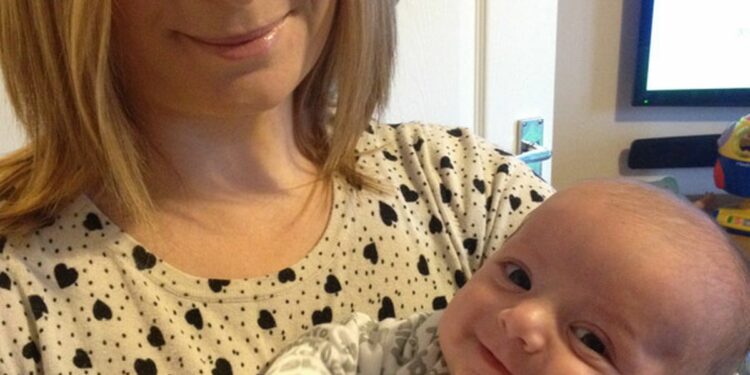Table of Contents
- Due to too much breast milk, the milk overflows with a large flow, making it difficult for the baby to swallow
- Hungry children should suckle milk in a hurry, then they may cough or laugh suddenly, causing them to choke
- Children 3-4 months old have begun to know how to talk, pay attention to people around
Then, How do you know if a baby has milk in their lungs? What are the symptoms of aspiration in babies and children?
- Weak sucking
- Choking or coughing while feeding
- Other signs of feeding trouble, like a red face, watery eyes, or facial grimaces
- Stopping breathing while feeding
- Faster breathing while feeding
- Voice or breathing that sounds wet after feeding
How do I know if my newborn is aspirating? Aspiration can cause signs and symptoms in a baby such as: Weak sucking Choking or coughing while feeding Other signs of feeding trouble, like a red face, watery eyes, or facial grimaces
in the same way, How do I get a deeper latch?
Should I take baby to hospital after choking? After any major choking episode, a child needs to go to the ER Get emergency medical care for a child if: The child has a lasting cough, drooling, gagging, wheezing, trouble swallowing, or trouble breathing The child turned blue, became limp, or was unconscious during the episode, even if he or she seemed to recover
What are the signs of silent aspiration?
This is called “silent aspiration” You may experience a sudden cough as your lungs try to clear out the substance Some people may wheeze, have trouble breathing, or have a hoarse voice after they eat, drink, vomit, or experience heartburn You may have chronic aspiration if this occurs frequently
How do I stop my baby from sleeping with aspiration?
Place infants in an upright/prone position during feedings Avoid placing babies under 6 months in a lying position for approximately 1 1⁄2 hours after feeding Avoid feedings before bedtime (within 90 minutes) Elevate the head of your child’s bed by 30 ̊
Can baby choke on milk if not burped?
“From birth to about 4 months, their choking hazards typically are the things you’re putting in their mouth” That means a newborn may choke on breast milk or saliva—and, later, baby food or, less often, mucus (from having a respiratory illness) or something they’ve regurgitated
How do you know if baby is getting milk in lungs?
What are the symptoms of aspiration in babies and children?
- Weak sucking
- Choking or coughing while feeding
- Other signs of feeding trouble, like a red face, watery eyes, or facial grimaces
- Stopping breathing while feeding
- Faster breathing while feeding
- Voice or breathing that sounds wet after feeding
Can newborns choke on spit up while sleeping?
Myth: Babies who sleep on their backs will choke if they spit up or vomit during sleep Fact: Babies automatically cough up or swallow fluid that they spit up or vomit—it’s a reflex to keep the airway clear Studies show no increase in the number of deaths from choking among babies who sleep on their backs
What happens if baby aspirated milk?
Aspiration can cause signs and symptoms in a baby such as: Weak sucking Choking or coughing while feeding Other signs of feeding trouble, like a red face, watery eyes, or facial grimaces
Can babies choke on milk while sleeping?
Regurgitated milk from the oesophagus lies at the lowest level and can be easily swallowed It is difficult for the fluid to work against gravity and be pushed up and into the respiratory tract Hence, the risk of choking is reduced when baby is sleeping on the back 2







